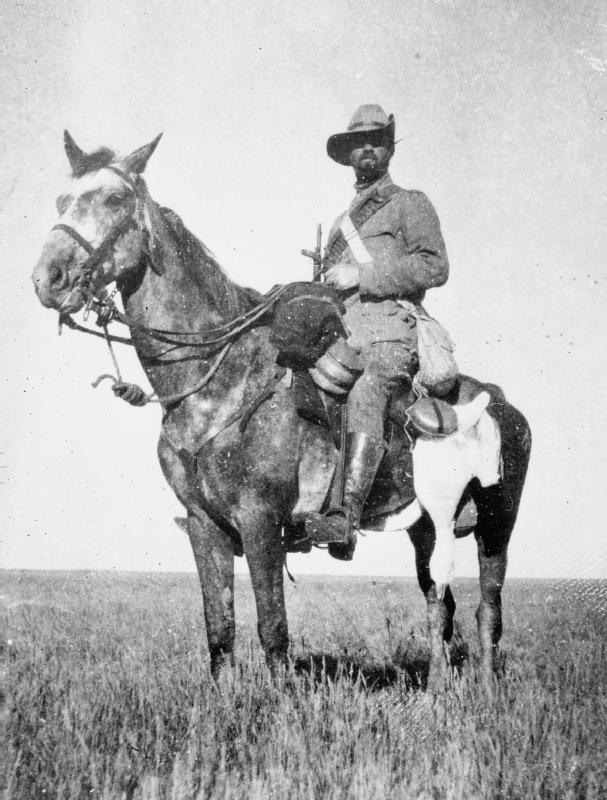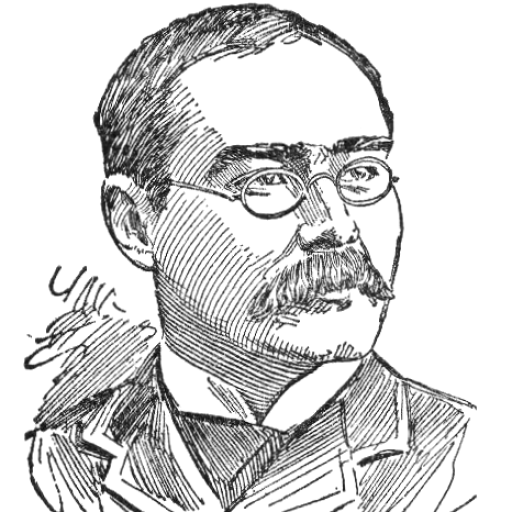With only the stars for my mark…

The hero of this poem is a close relative of the ‘Tramp-Royal’. He is a simple man without much education, who in England could get a job only as a servant; but he had been to the Boer war in South Africa and came back a changed man. He became a ‘pagan’ who does not fit any more into what we call ‘civilized’ society, he ‘chants’ to a different tune –
"That the sunshine of England is pale, An' the breezes of England are stale, An' there’s something' grown small with the lot. For I know of a sun an' a wind, An' some plains and a mountain be'ind... ...Where there's neither a road nor a tree - But only my Maker an' me, And I think it will kill me or cure, So I think I will go there an' see. Me!"
Every verse ends with this exclamation, “Me!” In the great lone spaces of South Africa, thrown back on his own resources, “with only the stars for my mark / an’ only the night for my friend”, this man has found himself.
His is by no means an isolated case. Many people from the industrialized countries who have lived in less developed countries (especially in Africa) became infected by the same longing for the wide-open spaces, and, on coming home, did not fit any more – a ‘reverse culture shock’. Such people can especially identify with the feeling of this poem.
Chant-Pagan
Me that 'ave been what I've been - Me that 'ave gone where I've gone - Me that 'ave seen what I've seen - 'Ow can I ever take on With awful old England again, An' 'ouses both sides of the street, And 'edges both sides of the lane, And the parson an' gentry between, An' touchin' my 'at when we meet - Me that 'ave been what I've been? Me that 'ave watched 'arf a world 'Eave up all shiny with dew, Kopje on kop to the sun, (1) An' as soon as the mist let 'em through Our 'elios winkin' like fun - Three sides of a ninety-mile square (2) Over valleys as big as a shire - "Are ye there? Are ye there? Are ye there?" An' then the blind drum of our fire ... An' I'm rollin' 'is lawns for the Squire, Me! Me that 'ave rode through the dark Forty mile, often, on end, Along the Ma'ollisberg Range, With only the stars for my mark An' only the night for my friend, An' things runnin' off as you pass, An' things jumpin' up in the grass, An' the silence, the shine an' the size Of the 'igh, unexpressible skies - I'm takin' some letters almost As much as a mile to the post, An' "mind you come back with the change!" Me! Me that saw Barberton took (3) When we dropped through the clouds on their 'ead An' they 'ove the guns over and fled - Me that was through Di'mond 'Ill, An' Pieters an' Springs an' Belfast - From Dundee to Vereeniging all - Me that stuck out to the last (An' five bloomin' bars on my chest) - I am doin' my Sunday-school best, By the 'elp of the Squire an' 'is wife (Not to mention the 'ousemaid an' cook), To come in an' 'ands up an' be still, An' honestly work for my bread, My livin' in that state of life To which it shall please God to call Me! Me that 'ave followed my trade In the place where the Lightnin's are made; 'Twixt the Rains and the Sun and the Moon - Me that lay down an' got up Three years with the sky for my roof - That 'ave ridden my 'unger an' thirst Six thousand raw mile on the hoof, With the Vaal and the Orange for cup, (4) An' the Brandwater Basin for dish - Oh! it's 'ard to be'ave as they wish (Too 'ard, an' a little too soon), I'll 'ave to think over it first - Me! I will arise an' get 'ence - I will trek South and make sure If it's only my fancy or not That the sunshine of England is pale, And the breezes of England are stale, An' there's somethin' gone small with the lot. For I know of a sun an' a wind, An' some plains and a mountain be'ind, An' some graves by a barb-wire fence, An' a Dutchman I've fought 'oo might give Me a job were I ever inclined (5) To look in an' off-saddle an' live Where there's neither a road nor a tree - But only my Maker an' me, And I think it will kill me or cure, So I think I will go there an' see. Me!
Notes
[1] ‘Kopje’, ‘kop’ – both Afrikaans words for “hill”.
[2] Before the wireless, military communications were dispatched by heliographs – mirrors which signalled by flashing the sun’s rays; here – to coordinate a three-sided attack.
[3] The place names in this and the following verse signify that the campaigns took “Chant-Pagan” throughout Transvaal, into Natal, and all over Orange Free State.
[4] The Vaal river forms the northern boundary of Orange Free State, the Orange river its southern boundary.
[5] See “Piet” about the comradeship created between an Englishman and a Dutchman through fighting each other.
